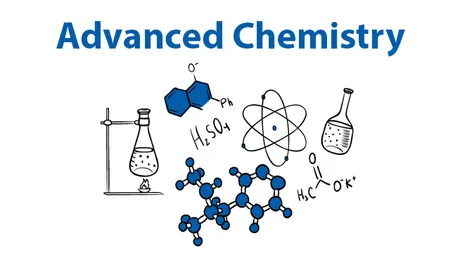
Free Chemistry Tutorial - Chemistry (Course 1 of 4) An Inquiry-Based Approach 
This course is designed to help students learn the fundamentals of chemistry through inquiry-based, discovery-style activities. Students will gain an understanding of the relationships and principles of chemistry by using data and models. Through this course, students will gain the skills to be in control of their own education and be able to apply their knowledge to real-world situations. ▼
ADVERTISEMENT
Course Feature
![]() Cost:
Cost:
Free
![]() Provider:
Provider:
Udemy
![]() Certificate:
Certificate:
No Information
![]() Language:
Language:
English
![]() Start Date:
Start Date:
Self Paced
Course Overview
❗The content presented here is sourced directly from Udemy platform. For comprehensive course details, including enrollment information, simply click on the 'Go to class' link on our website.
Updated in [May 25th, 2023]
This course provides an introduction to the fundamentals of chemistry. It is designed to help students develop an understanding of the structure of matter, the properties of matter, and the changes that matter undergoes. Through inquiry-based, discovery-style activities, students will explore the relationships and fundamental principles of chemistry.
The course begins with an introduction to the structure of matter, including the atomic structure of elements and the periodic table. Students will learn about the properties of matter, including physical and chemical properties, and how to use data and models to understand them. They will also explore the changes that matter undergoes, including chemical reactions, and the energy associated with these changes.
In addition, students will learn about the different states of matter, including gases, liquids, and solids. They will also explore the role of energy in chemical reactions and the role of catalysts in speeding up reactions. Finally, students will learn about the different types of chemical equations and how to use them to solve problems.
Throughout the course, students will be encouraged to think critically and develop their own understanding of the material. They will be given the opportunity to explore the material through hands-on activities and experiments. By the end of the course, students will have a better understanding of the structure of matter, the properties of matter, and the changes that matter undergoes. They will also have the skills to use data and models to understand the relationships and fundamental principles of chemistry.
[Applications]
The application of this course can be seen in many areas. Students can use the inquiry-based approach to explore the relationships and fundamental principles of chemistry. They can use the data and models to gain a better understanding of the subject. Additionally, teachers can use the course to help their students develop critical thinking skills and gain a deeper understanding of chemistry. Furthermore, the course can be used to help students prepare for exams and other assessments. Finally, the course can be used as a refresher for those who have already studied chemistry and need to brush up on their knowledge.
[Career Paths]
1. Chemist: A Chemist is a scientist who studies the composition, structure, and properties of matter. They use their knowledge to develop new products and processes, such as pharmaceuticals, food additives, and industrial chemicals. Chemists are also involved in research and development, quality control, and environmental protection. The demand for chemists is expected to grow as new technologies and products are developed.
2. Chemical Engineer: Chemical Engineers use their knowledge of chemistry and engineering to design, develop, and manage processes for the production of chemicals, fuels, drugs, food, and other products. They are also involved in research and development, safety, and environmental protection. The demand for chemical engineers is expected to grow as new technologies and products are developed.
3. Pharmaceutical Scientist: Pharmaceutical Scientists use their knowledge of chemistry and biology to develop new drugs and treatments for diseases. They are involved in research and development, safety, and regulatory compliance. The demand for pharmaceutical scientists is expected to grow as new drugs and treatments are developed.
4. Environmental Scientist: Environmental Scientists use their knowledge of chemistry and biology to study the environment and develop solutions to environmental problems. They are involved in research and development, environmental protection, and policy making. The demand for environmental scientists is expected to grow as new technologies and products are developed.
[Education Paths]
1. Bachelor of Science in Chemistry: A Bachelor of Science in Chemistry is a four-year degree program that provides students with a comprehensive understanding of the fundamentals of chemistry. Students will learn about the structure and properties of matter, chemical reactions, and the principles of thermodynamics. Additionally, they will gain an understanding of the principles of analytical chemistry, organic chemistry, and biochemistry. This degree is ideal for those interested in pursuing a career in the chemical industry, research, or teaching.
2. Master of Science in Chemistry: A Master of Science in Chemistry is a two-year degree program that provides students with an advanced understanding of the principles of chemistry. Students will learn about the structure and properties of matter, chemical reactions, and the principles of thermodynamics. Additionally, they will gain an understanding of the principles of analytical chemistry, organic chemistry, and biochemistry. This degree is ideal for those interested in pursuing a career in the chemical industry, research, or teaching.
3. Doctor of Philosophy in Chemistry: A Doctor of Philosophy in Chemistry is a four-year degree program that provides students with an in-depth understanding of the principles of chemistry. Students will learn about the structure and properties of matter, chemical reactions, and the principles of thermodynamics. Additionally, they will gain an understanding of the principles of analytical chemistry, organic chemistry, and biochemistry. This degree is ideal for those interested in pursuing a career in the chemical industry, research, or teaching.
4. Master of Business Administration in Chemistry: A Master of Business Administration in Chemistry is a two-year degree program that provides students with an understanding of the principles of chemistry and business. Students will learn about the structure and properties of matter, chemical reactions, and the principles of thermodynamics. Additionally, they will gain an understanding of the principles of analytical chemistry, organic chemistry, and biochemistry. This degree is ideal for those interested in pursuing a career in the chemical industry, research, or teaching, as well as those interested in pursuing a career in business.
The development trends for these degree paths are increasing demand for professionals with a strong understanding of chemistry and business. As the chemical industry continues to grow, there is an increasing need for professionals who can bridge the gap between the two disciplines. Additionally, the demand for professionals with a strong understanding of chemistry and business is expected to continue to grow as the industry continues to evolve and new technologies are developed.
Pros & Cons

Exercises to ask questions first.

Sections on significant ditches and variables.

Good teacher.

Precise and clear.

Need more detail.
Course Provider

Provider Udemy's Stats at AZClass
Discussion and Reviews
0.0 (Based on 0 reviews)
Explore Similar Online Courses

BigQuery for Marketing Analysts

Introduction to Business Analytics

Python for Informatics: Exploring Information

Social Network Analysis

Introduction to Systematic Review and Meta-Analysis

The Analytics Edge

DCO042 - Python For Informatics

Causal Diagrams: Draw Your Assumptions Before Your Conclusions

Whole genome sequencing of bacterial genomes - tools and applications

General Chemistry: Concept Development and Application

Advanced Chemistry

Free Chemistry Tutorial - Chemistry 101 - Chemistry in Society
 Related Categories
Related Categories
Quiz
 Submitted Sucessfully
Submitted Sucessfully
1. What is the main goal of this course?
2. What type of activities are used in this course?
3. How many courses are included in this tutorial?
4. What is the main goal of the Free Chemistry Tutorial?
Correct Answer: To learn the relationships and fundamental principles of chemistry using data and models.


Start your review of Free Chemistry Tutorial - Chemistry (Course 1 of 4) An Inquiry-Based Approach